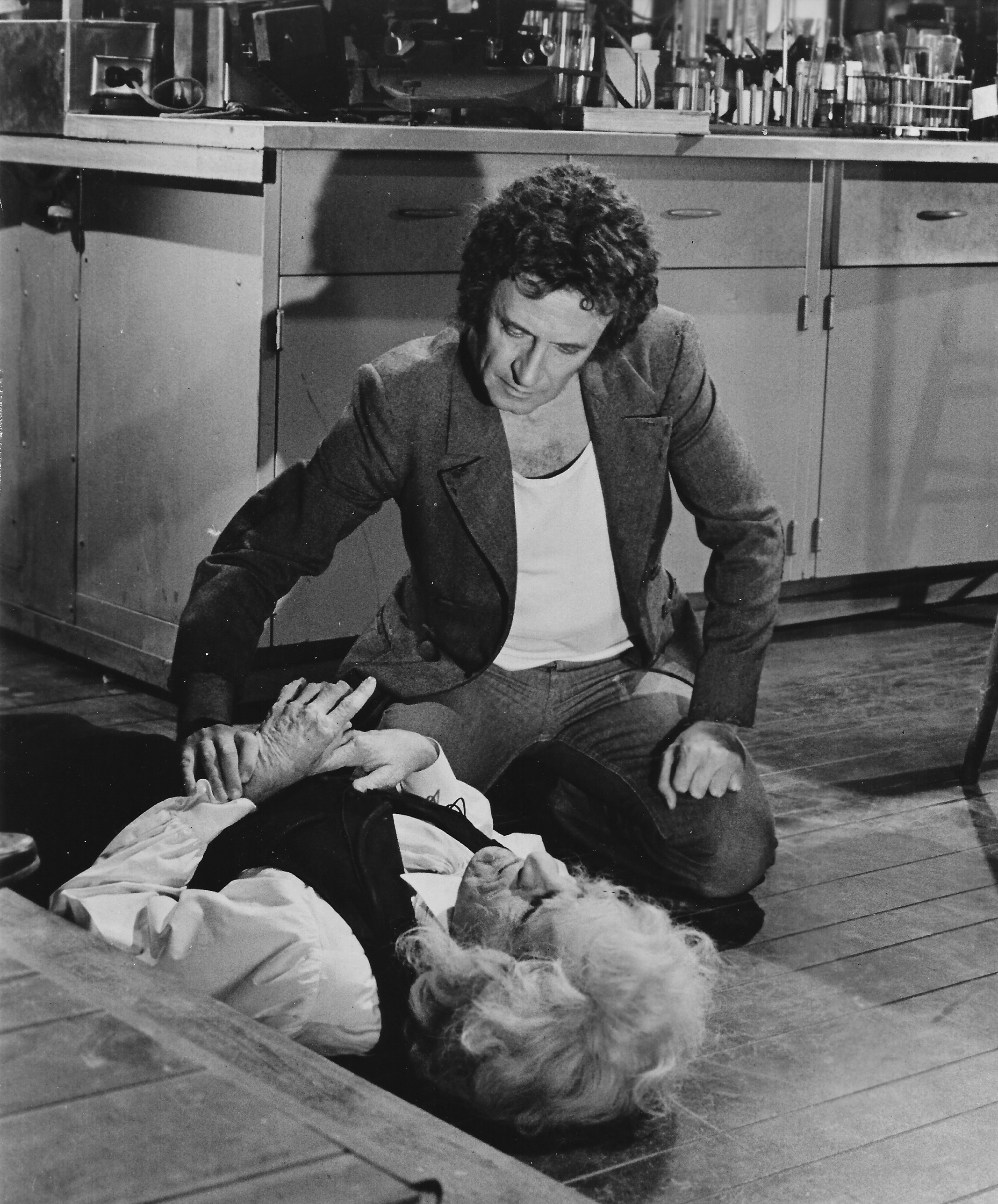Sunday, February 9, 1975
SHANKS. Written by Ranald Graham. Choreographed by and starring Marcel Marceau. Music by Alex North. Directed by William Castle. Running time: 93 minutes. Mature entertainment with the classifier's warning: "may frighten children." IT WAS NOT SUPPOSED to be lost in the dark days of a February release. Shanks, a film that describes itself as "a grim fairy tale," was designed a prestige horror comedy showcasing the talents of French mime Marcel Marceau.
A multinational production, it is based on a screenplay by British playwright Ranald Graham and developed by Vancouver's Unicorn Productions. Exteriors were shot in and around the Fraser Valley villages of Deroche and Agassiz and the film was directed by an American, William Castle.
The end product, unfortunately, suffers from considerable creative confusion. Graham, the author of numerous experimental dramas, probably intended his story to be chillingly surreal. In outline form, it reads like pure theatre of cruelty.
His title character, Malcolm Shanks, is a deaf-mute puppeteer, a dreamy, Cinderella-like fellow badly treated by an ugly stepsister (Tsilla Chelton) and her drunkard husband (Philippe Clay). Add to Shanks's troubles a hopeless love for one of the village children (Cindy Eilbacher).
Employed by an eccentric scientist, he learns how to reanimate dead bodies, a technique he uses when his benefactor dies. He is then able to revenge himself upon his oppressors, and develop his relationship with the little girl. The film builds to what may well be the screen's first instance of necrophilic pedophilia.
Attempting to make these incidents seem light-hearted, even likably lightweight, are collaborators Castle (a director once responsible for a series of gimmicky, tongue-in-cheek horror movies), and Marceau. The famous mime is seen here in a dual role, playing both Shanks and the scientist, Old Walker (the latter being his first speaking role, a part that gives him exactly 28 words to say in the film's 93 minutes).
The overall mood is set by a series of elegantly lettered, sepia-toned title cards. At the beginning we're introduced to "The town drunk with a shrew for a wife and a deaf-mute for a brother-in-law." Another card tells us when "Malcolm Shanks starts his journey into the unknown."
The performers — including Castle, who appears in a single scene as the general storekeeper — play their roles broadly in an overly obvious attempt to underline the picture's comic intent. More subtle, and considerably more pleasing, are the silent set pieces built around Marceau.
The highlight of the film is a scene in which the puppeteer revivifies an old friend and puts him through his paces as a human marionette. The routine exudes a macabre charm, a charm that the film as a whole fails to match.
At the end, there is a hint that it all may have been a weird dream, an unspeakable fantasy in the mind of an unspeaking man. If so, it is an idea, like many in the movie, that is left unclear.
It may be that, between them, Castle and Marceau have created a deliberate puzzle. More likely, Shanks is the result of an ambitious collaboration that failed to jell.
The above is a restored version of a Province review by Michael Walsh originally published in 1975. For additional information on this archived material, please visit my FAQ.
AFTERWORD: Shanks was filmed on location in the Vancouver area because producer Steve North's Unicorn Productions was based here. When writer Ranald Graham shared his original story with him, North took the project to William Castle. When the cameras were ready to roll, he brought his father, Alex North, on board to compose the film's score. In the Academy Award record books, Shanks is remembered as one of Alex North's 15 nominations for a best-music Oscar.
SEE ALSO: William Castle/Marcel Marceau Interview (1973): Matinee (1991)
